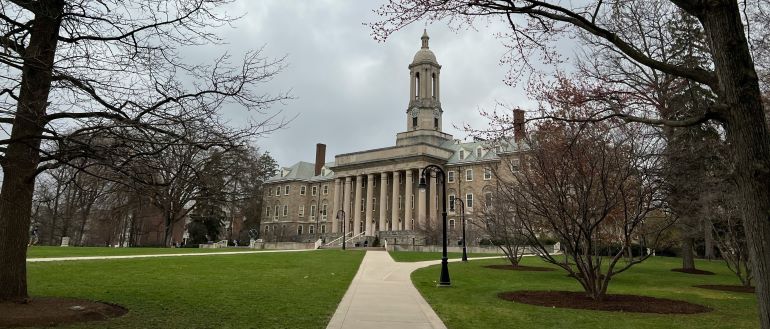
Beyond his political exploits, Benjamin Franklin was a scientist and inventor. In 1751, he founded a small school in Philadelphia that offered a curriculum that was a departure from what was being taught at the four other colleges in existence in the English colonies. Such vision still permeates the Ivy League walls at the University of Pennsylvania.
On February 13, 2024, Penn’s School of Engineering and Applied Science introduced its Bachelor of Science in Engineering in Artificial Intelligence degree, making Penn the first Ivy League School to offer an undergraduate AI degree. The B.S.E. in Artificial Intelligence curriculum offers high-level coursework in topics including machine learning, computing algorithms, data analytics and advanced robotics, according to the University. The program will start in Fall 2024.
Robert Ghrist, the associate undergraduate dean for Penn Engineering, said the University has marked several “firsts.”
“We had a first Ph.D. program in computer science, we had one of the first bioengineering programs, one of the first computer engineering programs, and we feel that what we’re doing with AI is in keeping with that spirit of innovation,” Mr. Ghrist said in an interview with Techstrong AI.
“We have a lot of researchers here at Penn engineering who do AI, who have done AI for a long time, I would say that over the past five to ten years, a lot of elements in our curriculum, especially in computer science and systems engineering, has been moving more and more towards AI and integrating those ideas, but the actual degree program, to have an independent degree, a bachelors of science in Engineering in Artificial Intelligence, that’s something that has just come into play in the past half-year.”
“What our primary goal with this degree is to train leaders in AI who can go out and help with that integration process, so that we’ve got people working in AI and medicine, or AI and law, AI and business, AI in robotics, things like that. What we have built into the program now is what are called concentrations, there are a large number of electives that students can take, different kinds of courses, and if students want a concentration in a particular area, then we have boundaries in place for that,” Mr. Ghrist said.
“One of the things that is so amazing about being at Penn, is that we have all these different world-class schools that are all right next to each other. I’m standing here in the engineering building and Penn medicine, one of the top medical schools is a five-minute walk from here. And we have one of the best business schools in the country, it’s a five-minute walk in a different direction, and it’s all here. As it is already, our engineering students, those who are interested in bioengineering or engineering and health tech, you get a lot of our students who work in the labs in the med school, its right there, it’s totally natural. So yes, we anticipate a lot of cross-interaction between schools.
Some institutions of higher education have been teaching AI skills for years and offer degrees with concentrations in AI.
The University of Texas at Austin launched an online master’s degree program in AI in January 2023, and offers undergraduate computer science degrees with concentration in AI. John Hopkins University also offers a master’s degree in AI.
Purdue University offers a B.A. in Ai through its Department of Philosophy. In announcing that new major in the Fall of 2022, the Department posted, “BA in AI majors will leave the program with the foundational programming and data analysis skills to make them competitive in the 21st Century job market. Additionally, you will have a deeper understanding of the central ethical and epistemological issues confronting big data today than many of your peers.”
Many colleges and universities, such as Cornell, have taken up discussions on how AI can be integrated to assist in the learning experience. There is a lot of optimism about the potential broad use of AI across various disciplines, but there is also a lot of concern as to how to protect that learning experience from bias, ethical problems and copyright issues. As students graduate and embark on careers in medicine, law, engineering and other fields, their familiarity with AI will surely increase the demand for AI majors, to integrate AI into the workplace.
“AI is here, it’s here to stay, it’s going to be super-important,” Mr. Ghrist said. “It’s going to be important not just as a degree on its own, as a discipline on its own, but it’s going to be integrated into other domains, other fields as well.”


